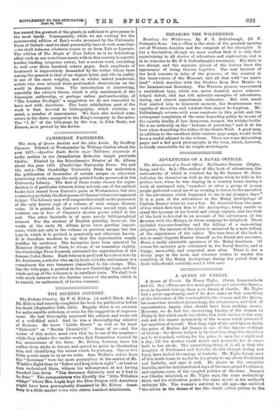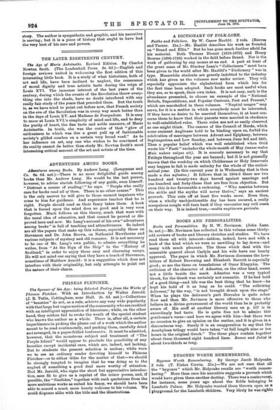A QUEEN OF UNREST.
A Queen of Unrest. By Henry Tighe. (Swan Sonnenschein and Co. 6s.)—There are few more pathetic and miserable figures, even in Spanish history, than poor Juana of Castile. Mr. Tighe had a great opportunity, and if he does make us feel something of the bitterness of life vouchsafed to the woman and the Queen, his somewhat involved phraseology, his allusiveness, and lack of concentration impair what should have been striking scenes. However, we do feel the unswerving loyalty of the woman to Philip le Bel which made her clothe him with virtues to the very end, and the insane melancholy of the woman which prevented her assertion of herself. That long vigil of the mad Queen inside the gates of Medina del Campo is one of the famous etchings of history : the Queen hedged in by Castilian etiquette, therefore not to be touched, waiting for the gates to open for a night and a day, till her mother could arrive and persuade her to come. back to her abode. The astonishing thing of it all is that the daughter of Ferdinand and Isabella should, though loving and loyal, have lacked the energy of Isabella. Mr. Tighe brings part of this truth home to us, for he has plenty to say about Ferdinand and Isabella, and says it well. He shows us the energetic Isabella, and the last humiliated days of the once proud Ferdinand, and explains some of the tangled politics of the time. Juana's son Charles inherited, as Mr. Tighe says, the same melancholy taint, and his abdication points the same moral as his mother's unhappy life. The woman's survival to old age—she outlived the actors in the drama of her We—lends added pathos to the story. The author is sympathetic and graphic, and his narrative is moving ; but it is a piece of history that ought to have had the very best of his care and powers.



















































 Previous page
Previous page